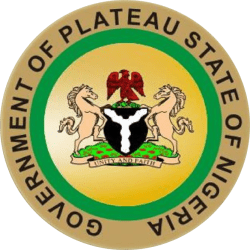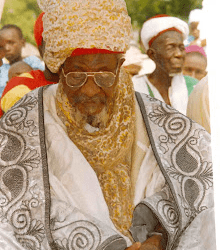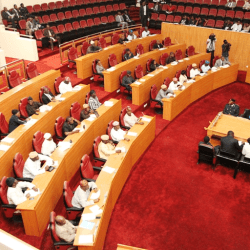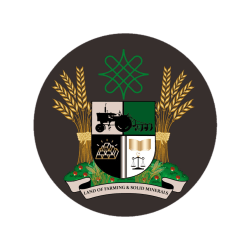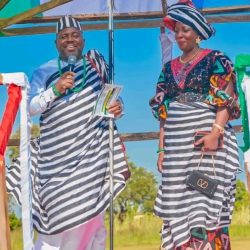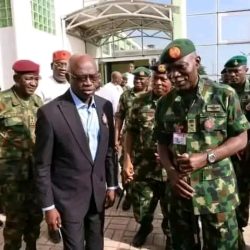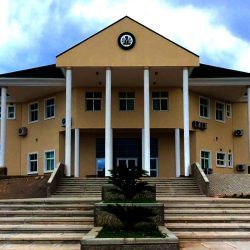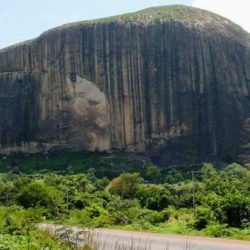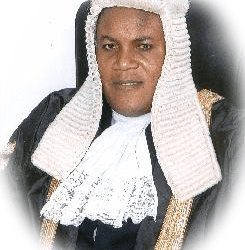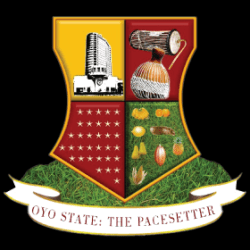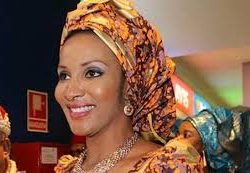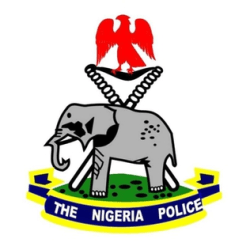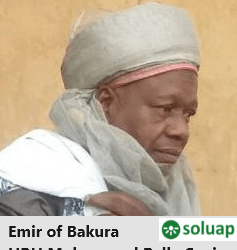A TRIBUTE TO GOVERNOR SOLOMON DAUSHEP LAR, CON.
BY DR. Gideon G. Barde, FRMR COMMISSIONER OF INFORMATION,
Old Plateau State, 1979 – 1983
A frontline nationalist, a detribalized Nigerian political leader, a practical democrat, a humanist, a lover of God and men, late Chief(Dr) Solomon Daushep Lar, earned the title of the EMANICIPATOR, while serving as the first civilian Executive Governor of old Plateau State, between October 1979 and December 1983. And, the title, rightly stuck to him throughout his subsequent years of public service till his death on 9th October 2013. For me, “the Emancipator”, remains his second name for ever.
As one of the closest, and trusted Honourable Commissioner for Information, Internal Affairs, Protocol, and Printing, I owe my erstwhile Governor this tribute, to enable the public fully appreciate the unique contributions he made while in Office, and why he was nicknamed, “the Emancipator”.
My first direct contact with Chief Solomon Daushep Lar was in 1969 when I became an undergraduate of the Ahmadu Bello University, Zaria, where he had been studying Law from 1966. We met under the auspices of the Benue Plateau State Students’ Association. He stood out among us as a matured student, given his age and experience as a former Grade Two Teacher, a Councillor, a Federal Parliamentarian and a Minister of State, between 1957 and January 1966. He was in his final year at the Kongo Campus when I just began my Degree Course in English Language and Literature at the Main Campus, Samaru.
Chief Solomon Lar was called to the Bar as a qualified Lawyer in 1971, while I obtained my B.A(Hons) Degree in June 1972. He went into private legal practice, while I joined the Benue Plateau State Civil Service as an Information Officer. In the course of duty, we met several times. In October 1979, when he was sworn in as the first democratically elected Civilian Executive Governor of Plateau State, which included the present Nasarawa State, he appointed me as an Honourable Commissioner and a Member of the State Executive Council, representing the Pankshin Local Government Area, which included the present Kanke LGA.
Governor Solomon Lar’s ideology or philosophy of Emancipation, began to emerge through his vocal and courageous outburst during the debates at the then Constituent Assembly between 1977 and 1978. It was the Resolutions of the Constituent Assembly that gave Nigeria the Presidential Democratic System of Government as contained in the 1999 Constitution.
The Nigeria Standard Newspaper, which I was editing during the period, published Chief Solomon Lar’s views alongside other viewpoints to enlighten its readers He opposed any proposal that tended to dehumanize any person or placing anyone or any ethnic group or religious faith as superior to any other. He stressed that all men and women were equal under the Law, as citizens of one country and as children of God, the Almighty Creator of humanity.
His election as the Executive Governor gave him ample opportunity to practicalise his belief in Emancipation. He seized the opportunity given to him by the Electorate and his political party, the Nigerian People’s Party(NPP), to demonstrate the essence of unity in diversity and solidarity of purpose in emancipating people from all manners of injustices imposed upon them for years. Thus, the NPP Government of Chief Solomon Lar was founded on the ideology of Emancipation.
Under Political Emancipation, priority attention was accorded the maintenance of peace and stability, the integration of the various ethnic groups and communities throughout the State.
Plateau State Government pioneered the creation of additional Local Government Areas in the then 19 States of Nigeria, by legally carving out eleven additional LGAs from the existing 14 LGAs. The new LGAs were Bokkos, Pan, Riyom, Federe, Jing, Akun, Keana, Doma, Obi, Toto and Uke, bringing the total to 25 LGAS in the State.

The NPP State Government also reorganized the Traditional Institution by creating new Chiefdoms, Districts and Village Areas, which resulted in the upgrading of number of First Class graded Chiefs and Emirs of existing thrones and the creation of new ones. For example, the number of First Class thrones rose to eleven in October 1982 from just one in 1979. By October 1979, only the stool of the Gbong Gwon Jos was graded as First Class, which status was elevated as such, by the late Police Commissioner Joseph Dechi Gomwalk, to dignify Jos, the State Capital.
Governor Solomon Lar’s Government abolished the unjust practice whereby some non-indigenous Princes were imposed as District Heads by some powerful paramount Traditional Rulers to rule over some minority indigenous ethnic groups. Rather, such oppressed ethnic groups were given their own Chiefdoms and the liberty to elect or select their own indigenous rulers. This policy enhanced participatory democracy at the grassroot level as well as restored the dignity of every ethnic group in the State. As a result, the number of graded Traditional Rulers increased from 21in 1979 to 34 by 1982.
The passionate appeal of the former Sangari of Awe, Alhaji Umaru Usman, who had been deposed and banished for 25 years from his domain, was reviewed and amnesty was granted to him by the State Government.
Similarly, the cry of livestock farmers over heavy cattle and poll taxes, “Jangali” was answered by the Government, as the tax system was abolished.
Furthermore, the State Government constituted the 48 Constituencies of the State House of Assembly into units of general development for the State, to ensure equal distribution of resources and amenities as a panacea of balanced development.
The Emancipation Policy recognized the strategic role of Education and Manpower Development in the purposeful development of the State and country. Therefore, the Government of Chief Solomon Lar expanded Primary Schools, and the number of Pupils increased from 526,039 in 1980 to 600,892 in 1981. Similarly, 109 new Secondary Schools were established between 1980 and 1982. Secondary Student population rose from 17,862 in 1979 to 50,000 in 1982. The number of Students on State Scholarship in Universities and other tertiary Institutions rose from 703 in 1979 to 4,000 in 1982.
In order to produce the highly needed skilled technical manpower, the then College of Technology at Barkin Ladi was upgraded and transformed into a full-fleged Polytechnic in 1980. In the same vein, the shortage of qualified professional Teachers necessitated the establishment of the College of Education in 1981 at Gindiri. The School of Preliminary Studies, Keffi, and the Advanced Teachers College Akwanga, also witnessed the building of additional Lecture Halls and other facilities which enabled the Institutions to admit more students to prepare them for higher education.
Another landmark achievement of the Government of Chief Solomon Lar was the formulation of a definite and concrete policy and programme of Nomadic Education for the children of nomadic cattle rearers. Plateau State became the first State in Nigeria to commission a Nomadic Primary School at Mazat, Barkin Ladi.
It is also noteworthy that the commitment of Governor Solomon Lar to the promotion of moral education in our schools led to the improvement of the Conditions of Service of Religious Teachers by bringing them in line with other Teachers on Permanent and Pensionable bases.
Governor Solomon Lar also undertook a general administrative review to enhance efficiency and offer better service to the public. The Government reorganized its Ministries, Departments and Parastatals. Research and Protocol Directorates were created for the first time in the Office of the Executive Governor. A new Ministry of Rural Development was created to promote rural transformation of the State, while the Board of Internal Revenue was transformed into a full Ministry.
The new Parastatals created by the NPP Government included the Plateau Electricity Corporation, Plateau Christian Pilgrims Welfare Board, Plateau Muslim Pilgrims Welfare Board and Plateau State Council for Arts and Culture. The Fire Brigade Service was revamped and a new station and Training School were established at Bukuru.
The Economic Emancipation projects initiated and undertaken by the Government of Governor Solomon Lar included the expansion of the Jos international Breweries (JIB) to produce about 350,000 hecto litres of Rock Beer per annum; the establishment of the famous BARC Farm at Zalaki in Bassa LGA; the establishment of the Highland Bottling Company, Barkin Ladi, with a capacity of about 200,000 hecto litres of Soft Drinks per annum as well as the Plateau State Bottling Company, Zarazon in Jos East LGA, with the production capacity of about 200,000 litres of assorted Soft Drinks per annum.
Furthermore, a Foods Processing Company was established in Jos to process fruits, tubers and grains, that abound in the State. The Savannah Insurance Company was incorporated to provide essential security and other services to the public. In the same vein, the Lion Bank of Nigeria Limited was founded to cater for the banking and financial services of the people. In order to boost trading and commerce, the State Government completed and commissioned the Jos Ultra Modern Main Market. And, in order to provide suitable accommodation for Tourists, the Administration undertook the building of a Five Star 300-bed Rock Sheraton Hotel, at Laminga in Jos, near Shere Hills. The block-work was completed before the Military toppled the Second Republic, which disrupted its finishing and commissioning.
Governor Solomon Lar’s Government also eased travelling and transportation of goods, particularly heavy agricultural products that abound in the State. The Government constructed several lengths of roads, totalling 608 kilometres, across the State.
The provision of portable drinking Water as well as water needed for dry-season farming and livestock breeding, was accorded priority attention by the State Government of Governor Solomon Lar. The Water Supply Programme covered the urban, semi-urban and rural communities of the State. The Shen Dam, which was under construction to provide 20 million gallons of water for the Jos metropolis was completed and commissioned as Yakubu Gowon Dam in June 1981. The semi-urban water supply projects at Barkin Ladi, Obi, Yelwa, Wase, Dengi, Nasarawa Eggon, Keana, Toto, Doma, Uke, Riyom, Bassa, Jing, Federe, Kwalla and Bokkos, were completed and commissioned. Multi-million new earth dams were constructed for Pankshin and Langtang, while the dams at Lafia, Keffi, Shendam, Nasarawa and Gindiri, were expanded to meet the demand of growing users. In addition, 46 villages benefitted from new boreholes that were sunk for them.
In order to bring Health-Care Services closer to the people, Governor Solomon Lar’s Government expanded the then existing General Hospitals by building additional Wards, Pharmacy Departments, Staff Quarters, as well as the fencing of their premises. In addition, part of the London Midland Bank Loan was used to build 10 new Cottage Hospitals, 50 Health Clinics, Five Primary Health Centres and the present College of Health Technology at Zawan in Jos South LGA.
Plateau Hospital (now called Specialist Hospital), was also expanded by constructing an additional 30-bed Ward, a Pathology Laboratory, an Out-Patient Department, a Canteen and a Recreation Block. The NPP Government also fulfilled its campaign promise by returning all the Voluntary Agency Hospitals earlier taken-over by previous Military Regimes to their rightful owners. The State Government returned the Maternity Hospital, Jos and Our Lady of Apostles Hospital, Akwanga, to the Roman Catholic Mission, while the Evangel (Jan-Kwano) Hospital, Jos, went back to ECWA. In the same vein, the Christian Hospital, Vom, was given back to COCIN, and the Seventh Day Adventist Hospital at Jengre, was returned to its owners, the Seventh Day Adventist Mission.
Realizing that the main occupation of the people of the State was Agriculture, Governor Solomon Lar’s Administration resolved to boost agricultural development by establishing the Plateau State Agricultural Development Corporation (PSADC) in March 1980. Under this Agency, the Bokkos Mechanized Farm Project cultivated 540 Hectares of arable land with maize, while the Sabon Gida Fadama Farm Project cropped 540 Hectares with rice and maize. Kuru Feedmill and Hatchery was established. New farms at Wase, Wamba, Ugah and Namu covering a total of 4,230 hectares, were embarked upon.
Part of the London Midland Bank Loan was also invested in the purchase of 650 International Harvester Tractors to boost agricultural production generally in the State. The Kassa Central Mechanical Workshop was well-equipped for Tractor-servicing and general maintenance, while the Farm Mechanization School, Yelwa, witnessed increase in Student number from 50 to 200, an indication of growing interest among the Youth in farming.
As a manifestation of our successes in Agriculture, our State alone supplied 35tons of rice seeds to the Federal Government in 1981, which amounted for 26% of the total national rice seed requirements. We also supplied 30tons of rice seeds to the Kano State Government with whom we collaborated very well in several areas of human endeavour.
In the field of Sports, Governor Solomon Lar’s Administration, encouraged the Youth to develop their potentials, and our Sportsmen and women won laurels in football, cycling, volley ball, judo and athletics. Our contingent to the 1979 National Sports Festival was placed 7th in the overall medal table. But, in 1981, the State contingent moved to the 6th position, out of 19 States, and was the first among the 10 Northern States. And, in 1982, the Plateau State Male Handball Team emerged as the National Champion.
To raise the living standard of our people in semi-urban and rural areas, the Plateau Electricity Corporation was established in March 1980, with the mandate to Generate and Supply Electricity to about 23 semi-urban and rural areas, not covered by NEPA’s national grid. The Agency (PEC) was mobilized and it provided electricity to Kwande, Kurgwi, Umaisha, Awe, Toto, Keana, Doma, Garaku, Jarmai, Jengre, Uke, Obi, Assakio, Nasarawa Eggon, Binchi, Kwalla, Chip, Riyom and Mada.
As a Lawyer, Governor Solomon Lar was committed to creating a conducive atmosphere for the administration of Justice in Plateau state. There was an urgent need to establish more Courts across the State to bring justice closer to the people. New High Courts at Pankshin, Langtang, Lafia and Keffi were opened, while the Jos High Court was expanded with additional four Court rooms. Also, in 1980, over 80 Area Courts were established across the State, while 10 new Magistrate Courts were opened at Bassa, Barkin Ladi, Bukuru, Mangu, Dengi, Shendam, Doma, Nasarawa, Keffi and Akwanga. It is noteworthy that Plateau state was the first in the country to establish a Customary Court of Appeal, to hear appeals on customary cases.
Governor Solomon Lar was passionate about obtaining justice in our Courts. It did not matter to him who the Judge was or where he originated from. That was why he appointed Justice Obi Okoye from Anambra State as the Chief Judge of Plateau State. He also appointed High Court Judges who originated from Lagos, Ogun, Edo, Delta, Bayelsa and Imo States to serve our people.
Governor Solomon Lar was a politician who understood the role of the Mass Media in national development. He knew that the Press had the capacity to build or destroy the trust and the confidence of the electorate in the Government or in a person. As a wise politician, he cultivated friendship with Journalists and was ever willing to chat with them. As a lawyer, he knew that facts are scared and as a good Christian, he believed that the truth has the power to set its bearers free from false accusation. It is to his credit that the present premises of the PRESS CENTRE, Jos, was donated to the Nigeria Union of Journalists, Plateau State Chapter.
The NPP State Government under Governor Solomon Lar was branded as confrontational by the ruling NPN Federal Government of President Shehu Shagari. Therefore, in order to survive the unjust pressure from deliberate “news blackout”, the State Government had to build a new Television Station, (PTV), to contend with the negative publicity been given the State Government. The Hausa Language version of the Nigeria Standard Newspaper, the “Yancin Dan Adam”, was added to the Daily and Sunday Standard editions, to further enlighten the electorate. The ten-storey Standard Building that was started in 1977, was completed and renamed Joseph Gomwalk House.
Your Excellency, the Emancipator, my Governor, as one of your closest Commissioners, as your favoured Commissioner for Information, Internal Affairs, Protocol and Printing, I am testifying that I enjoyed the liberty you gave me to develop the Information Agencies under my supervision. I cannot forget how you gave me the go-ahead to plan and establish a new State Television Service (PTV), which we were able to commission in 1982. Nor I can forget how considerate you were when you cooperated with me to guarantee the payment of the Salaries of the Staff of Plateau Publishing Corporation and the Plateau Radio Television Corporation, at a time that the State Government had difficulty coping with the monthly salary payment of Civil Servants, due to the drastic fall in revenue accruing to the country as a result of the crisis in prices of Crude Petroleum in the International Market.
You also allowed me to serve as the Chairman of the Board of PTV, the Chairman of the Advisory Council on the Prerogative of Mercy, a Member of the State Tenders Board, as well as a Founding Director of the Kano State Government Triumph Publishing Corporation. In addition, you reappointed me into your Cabinet in November 1983, at the beginning of your Second Term and posted me to superintend over the Ministry of Establishments, Training and Service Matters in your Cabinet Office, until the military coup of General Muhammadu Buhari, which ended the Second Republic.
I thank you for the trust and confidence you reposed in me, even after the dissolution of our Government. When you were falsely accused of misusing your Security Vote, by misappropriating 32 million Naira in four years, and compelled to appear for trail by the Brigadier General Peter Ademokai Special Military Tribunal, you selected seven Defence Witnesses, including three Members of your Cabinet. You chose to present me as your first Defence Witness. I cannot forget my first experience of being transported in a “Black Maria” in your company, from the Jos Main Prison, to face the Military Tribunal at the then Government Lodge, Tudun Wada (now Jishe). Iam glad that the Tribunal established that you did not enrich yourself with the money, as all your Bank Accounts were confirmed to be in-the-red, nor did you amass personal property anywhere.
The news of your death shook the entire Nigerian nation, as you had effectively used the opportunities God gave you in life to touch humanity positively. I am glad that a befitting State Funeral is being planned for you. You deserve nothing less. I remember how you led your entire Cabinet to Gboko in honour of your late political associate and leader of the erstwhile United Middle Belt Congress (UMBC), Senator Joseph Tarka. I also remember how compassionate you were when your Deputy, Alhaji Danladi Yakubu, was taken by mental sickness, and how you sent him to the United Kingdom for treatment, and the difficulty you had in accepting his impeachment and replacement by Alhaji Aliyu Akwe Doma.
While alive, you gave us leadership each time we lost any of our former colleagues, as you would always, on our behalf, condole the family of the bereaved. You led us in mourning our departed beloved collegues, Honourable Commissioners Akubaka Isandu, Polycarp Datok, Sambo Daju, Joshua Gamde, Gregory Golu, Janet Akinrinade, Katherine Hoomkwap, Joseph Umaru, Abraham Dantoro and Hon. Alhaji Yakubu Hussaini. You also led us in mourning the passage of your Special Advisers, Alhaji Muhammadu Wada, Hon Amos Idakula and Hon Peter Madaki, who were our associates.
On behalf of my colleagues, Members of your Cabinet who are still alive, His Excellency Alhaji Aliyu Akwe Doma, HRH Osana of Keana, Senator Emmanuel Elayo, Alhai Suleiman Ubam, Justice Yakubu Idris, Hon Dogara Igube, Hon. John Chuwang, Dr. Rimtel Wazhi, Rev. Dr. Sylvester Nagba, Hon. Samuel Mafuyai, Hon. Yohanna Dalyop, the SSG Chief Samuel Gofwen, The HCS Dr Jefferson Mamven and your Special Advisers, Col Josaf Madugu, Dr. Christopher Abashiya and Alhaji Muhammadu Gwaska, I pray that Almighty God, our Creator and owner of our lives, grant your very gentle and kind soul, and the souls of all our deceased colleagues, eternal peace and rest, till we join you, by His grace, when the good Lord is through with us on this planet. Adieu, our Emancipator.

